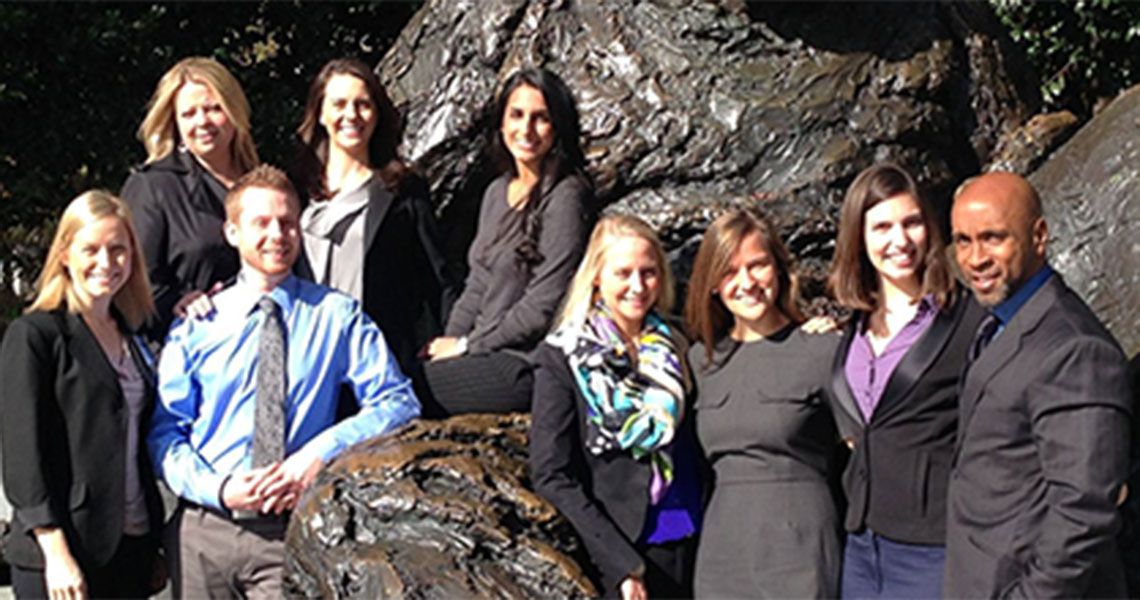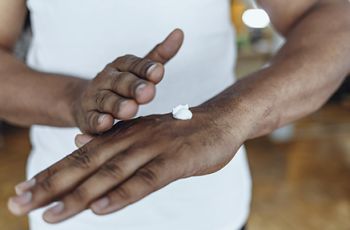A dual-degree physician assistant (PA) and Master of Public Health (MPH) candidate, Elizabeth Prevou brought a unique point of view to the first D.C. Regional Public Health Case Challenge held at the Institute of Medicine, Nov. 15. Prevou, a first-year student at the GW School of Medicine and Health Sciences and director of outreach for the Student Academy of the American Association of Physician Assistants, was chosen to participate in the case challenge along with students from the GW School of Public Health and Health Services and the GW Graduate School of Education and Human Development. The group brought home the Most Interdisciplinary Approach award.
Their challenge was to develop an innovative and practical proposal to address a real-world public health problem in the District of Columbia in two weeks with a $200,000 budget. The case was preventing violence towards the Lesbian, Gay, Bisexual, and Transgender (LGBT) adolescence community.
To put a face on the problem, the group created a fictitious character named Sam, who identifies as part of the LGBT community. Sam recently came out to her parents, who then kicked her out of the house. Sam is now doubly disenfranchised, explains Prevou. Not only she is part of the LGBT community, but she is also now homeless.
As a PA, it will one day be Prevou’s role to recognize situations like Sam’s in a primary care setting. “Most adolescents aren’t asked about sex or their sexuality, let alone in a way that is nonjudgmental,” Prevou said. “The first chance young people get to openly talk about being LGBT can be with their pediatrician or primary care provider, but that often doesn’t happen because of the provider’s own bias or assumptions about being associated with the LGBT community.”
As the case evolved, the group made a conscious effort to continually advocate for their own profession and weave their perspective and experiences into the process. Prevou achieved this by reminding the group that the adolescent’s primary care provider is a good place to start the conversation about sex and sexuality. Homelessness places LGBT individuals at increased risk of violence, says Prevou. “If she had been supported during her coming out process, she would not be homeless.”
Prevou’s advice was to bring the discussion back to the fact that preventing violence in the LGBT adolescent community is a primary health care need. “I would constantly ask the question, ‘How do we get primary care providers, such as pediatricians, physician assistants, nurse practitioners, and M.D.s involved in this initiative?’”
The group’s intervention focused on building support for the LGBT community first in the school, then in the community, and eventually by changing policy. “At the school level, individuals would band together to support each other. At the community level, we would bring in role models and mentors from the community to support the adolescents, and at the policy level, this powerful group of LGBT adolescents and mentors would lobby for change in legislation,” she explained. Prevou and her team called their three-phase intervention, Toward an Engaged Adolescent Movement (TEAM).
There was also a large mentorship component to the group’s strategy. It would be a PA’s job, explained Prevou, to reiterate to the students that “this is what I tell my patients” or “these are resources available to you.”
In addition, the group decided to flip the concept of a gang on its head. What gangs unfortunately do well, Prevou said, is target adolescents that are disenfranchised. “Our movement focused on addressing their needs through strategies that have previously been abused by gangs,” she said. “Our TEAM offered a sense of belonging to individuals and used positive group momentum that appeals to adolescents in order to make our intervention successful.” Ultimately the group determined that “if their needs are met, they are less likely to be disenfranchised and therefore less likely to be the victims of violence.”
When the group created their intervention, “it would have been easy to think of it as just another school project,” Prevou said. But this group decided to think big. “We were asking ourselves what would work in Washington, D.C. and we were putting ourselves in the shoes of local LGBT adolescents.” The group is currently putting together a list of local organizations that they would like to partner with to turn their TEAM into a reality. High on that list is SMYAL, Supporting and Mentoring Youth Advocates and Leaders, which supports and empowers lesbian, gay, bisexual, transgender, and questioning youth in the region. The team decided to donate their $200 prize money to the organization.
For Prevou, this challenge was about “pushing each other to take the idea further, thinking outside of the box, and considering the strengths and weaknesses of each argument,” she said. “We took this case challenge seriously and created something that we are proud of and that we believe can be implemented in D.C.”



